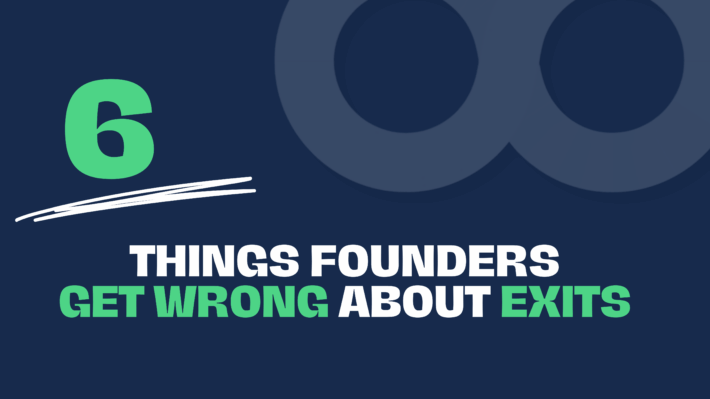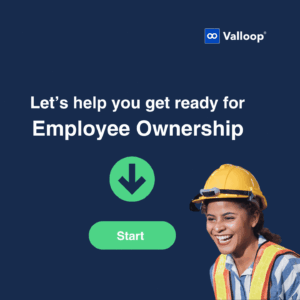3 of the Largest Employee Owned Companies

Employee ownership is shaking up the business world and in the best way possible. Companies are moving away from the traditional “one-owner” or “shareholders-first” models, instead embracing the idea of giving employees a real stake in the game. it’s proving to be a win-win-win for everyone involved: businesses, employees and the community.
So, what’s the buzz all about? From creating a thriving workplace culture to delivering standout financial results, employee ownership is making waves across industries. But what exactly is it and why is it working so well?
What Does Employee-Owned Really Mean?
You’ve likely come across the term “employee-owned,” But what does it truly involve?
At its heart, employee ownership means that the people who work in a company also hold an ownership stake. Unlike traditional models where a single individual or group of shareholders owns the business, employee ownership spreads the stakes among the workforce. This creates a unique dynamic, aligning employees’ success with the success of the company itself.
There are several ways companies can adopt employee ownership, the two most popular are:
- Employee Ownership Trusts: The trust acquires shares in the business on behalf of all employees and can be received by employees as soon as the company makes a profit. This model encourages long-term, sustainable employee ownership. The main appeal of EOTs is their ability to promote collective ownership, which can drive employee engagement and business stability.
- Employee Stock Ownership Plans (ESOPs): Employees earn shares in the company as part of their retirement package. Over time, this gives them a financial interest in the business’s growth and success.
We have further information on the difference between ESOPs and Employee Ownership.
While the technical structure of employee ownership varies, the underlying principle remains the same: employees have a real, personal stake in the business. This ownership often extends beyond financial shares, and can enhance a culture, collaboration, and give employees a voice in the company they work for.
When employees feel like they truly belong to their organisation, their engagement and commitment to its success naturally increase. This is why so many companies are turning to employee ownership as a strategy for fairness and a way to drive business results.
How Employee Ownership Benefits Businesses
Why would a company choose to adopt an employee-owned structure? The benefits go far beyond the surface. While it’s true that employee ownership promotes fairness and shared success, the business advantages are equally compelling. Some benefits include:
1. Higher Employee Engagement and Productivity
When employees have a tangible stake in the company, they are more motivated to see it succeed. Knowing that their efforts directly impact the company’s bottom line but also their own financial rewards encouraging a sense of pride and accountability.
This increased engagement leads to higher productivity. Employees are more likely to go above and beyond in their roles because they see the direct benefits of their hard work. Collaboration flourishes and a shared purpose drives teams to achieve common goals.
2. Reduced Employee Turnover
It’s no secret that hiring and training new staff is expensive and time-consuming. Employee ownership significantly reduces turnover because employees feel a deeper connection to their company. When people see themselves as owners rather than just workers, they’re far more likely to stay and grow with the organisation.
This stability benefits businesses in multiple ways: reducing recruitment costs, retaining institutional knowledge, creating a loyal and experienced workforce.
3. Enhanced Customer Experience
Happy employees make happy customers. In an employee-owned company, workers tend to be more invested in delivering exceptional service. This translates into better customer experiences, higher satisfaction and increased loyalty.
Customers are also more likely to support businesses that align with their own values. The idea of backing a company that prioritises fairness and shared success resonates with many consumers.
4. Stronger Public Reputation
Employee ownership is a unique selling point in today’s competitive market. Businesses that adopt this model often enjoy a boost in public perception, attracting customers and top talent alike. In a world where people increasingly value transparency, fairness, and collaboration, being employee-owned signals a commitment to these principles.
5. Sustainable Growth and Resilience
Employee-owned companies often focus on long-term goals rather than short-term profits. This sustainability-minded approach helps them navigate economic challenges more effectively. By prioritising steady growth and reinvesting in the business, these companies build resilience that traditional ownership models can struggle to match.
Some of the Largest Employee-Owned Companies in the UK
Employee ownership is already in place for many well-known companies. Here are four standout examples of businesses that have embraced this model in the United Kingdom.
1. John Lewis Partnership
The John Lewis Partnership is a UK institution, known for its department stores and Waitrose supermarkets. But beyond its products, the company’s employee ownership model sets it apart.
In 1929, founder John Spedan Lewis introduced this structure to ensure employees had a genuine stake in the company’s success. Today, all employees, known as “Partners,” collectively own the business. They share in the profits and have a say in key decisions, fostering a collaborative and motivated workplace culture.
Financially, John Lewis has seen both challenges and successes. In 2024, the company reported a 2% increase in revenue, reaching £5.2 billion, and reduced pre-tax losses to £30 million. Despite market pressures, its employee ownership model continues to be a source of resilience and innovation.
2. Mott MacDonald
Mott MacDonald, a global engineering and consultancy firm, has been fully employee-owned since 1989. This model has created an environment of collaboration and innovation, empowering employees to take ownership of their roles and the company’s success.
In 2023, Mott MacDonald reported a 15.8% revenue increase, totalling £2.37 billion. By prioritising long-term growth and digital innovation, the company has maintained its position as a leader in its field.
3. Howden Group Holdings
Founded in 1994, Howden Insurance has grown into a global insurance intermediary, proudly celebrating 30 years of employee ownership in 2024. With over 5,200 employees across 48 countries, the company is largely owned by its workforce.
This alignment of interests has driven exceptional growth, with Howden achieving a compound annual growth rate of 25% over three decades. By blending employee ownership with external investments, Howden has expanded its global presence and maintained a focus on innovation and service excellence.
The Future of Employee Ownership
The employee ownership model is proving more valuable than ever. By sharing responsibility and rewards across the workforce, companies can build resilience and thrive even during challenging times. It’s no surprise that more industries are embracing this approach.





